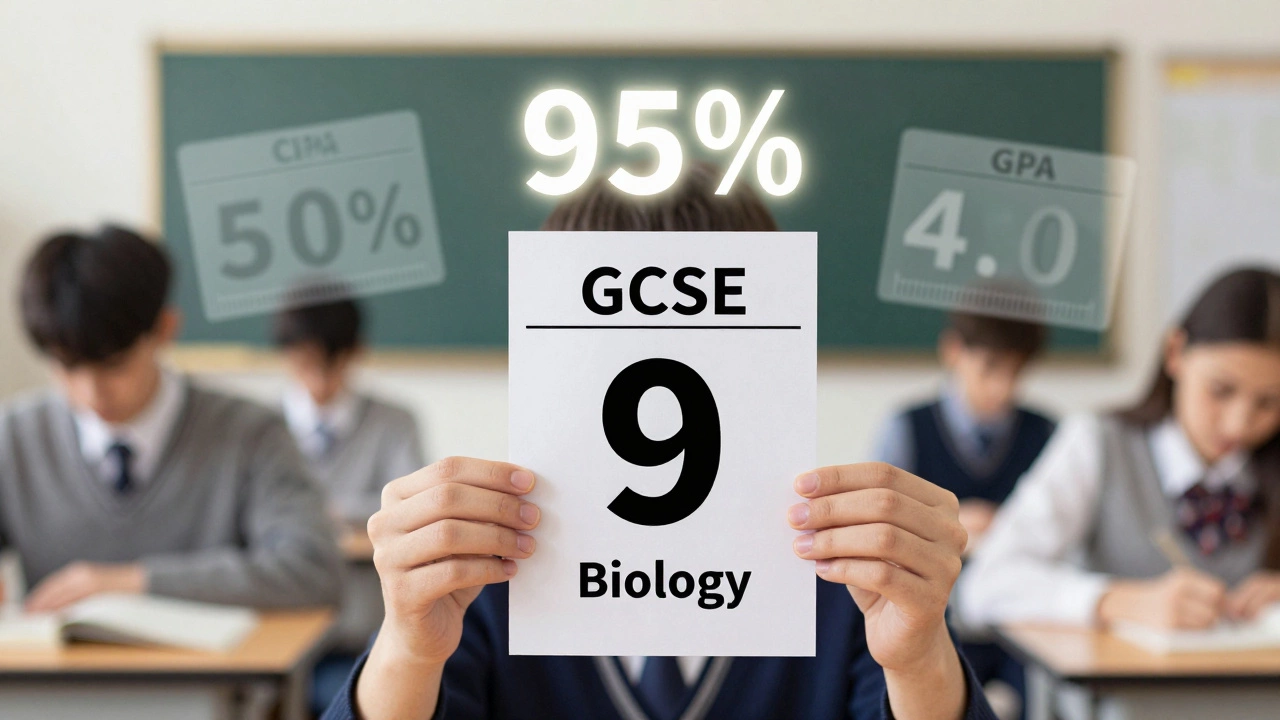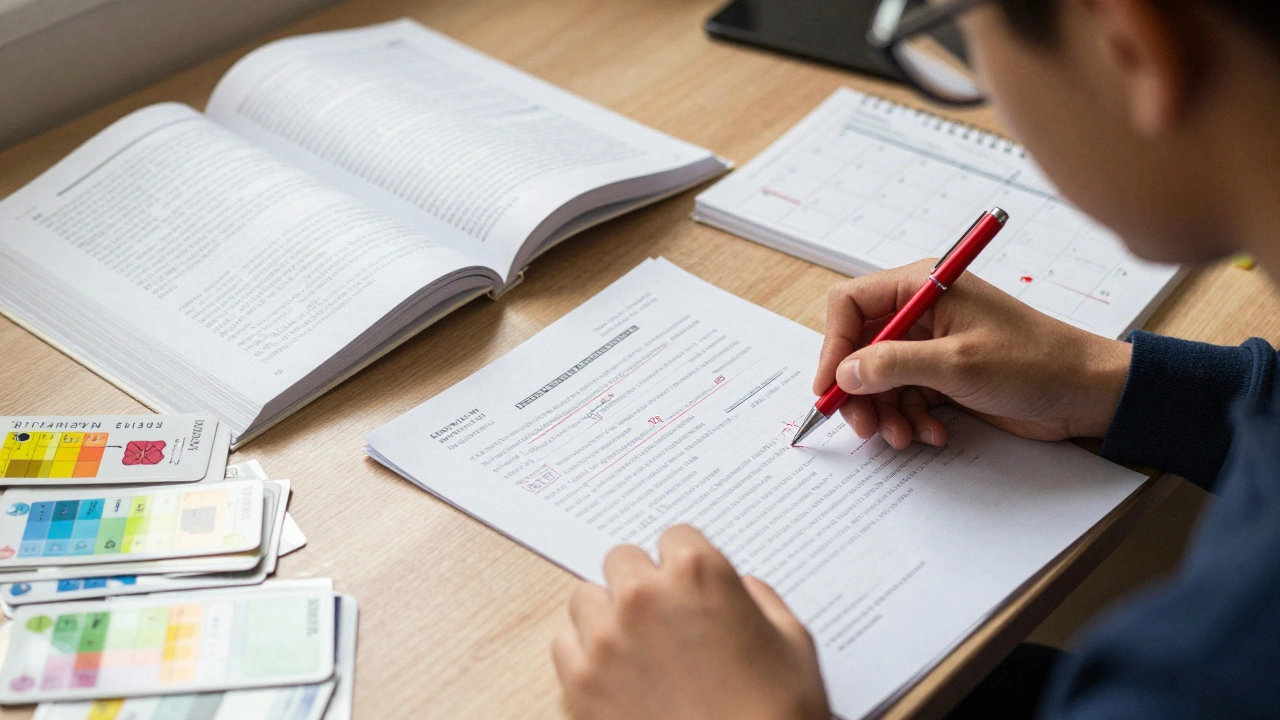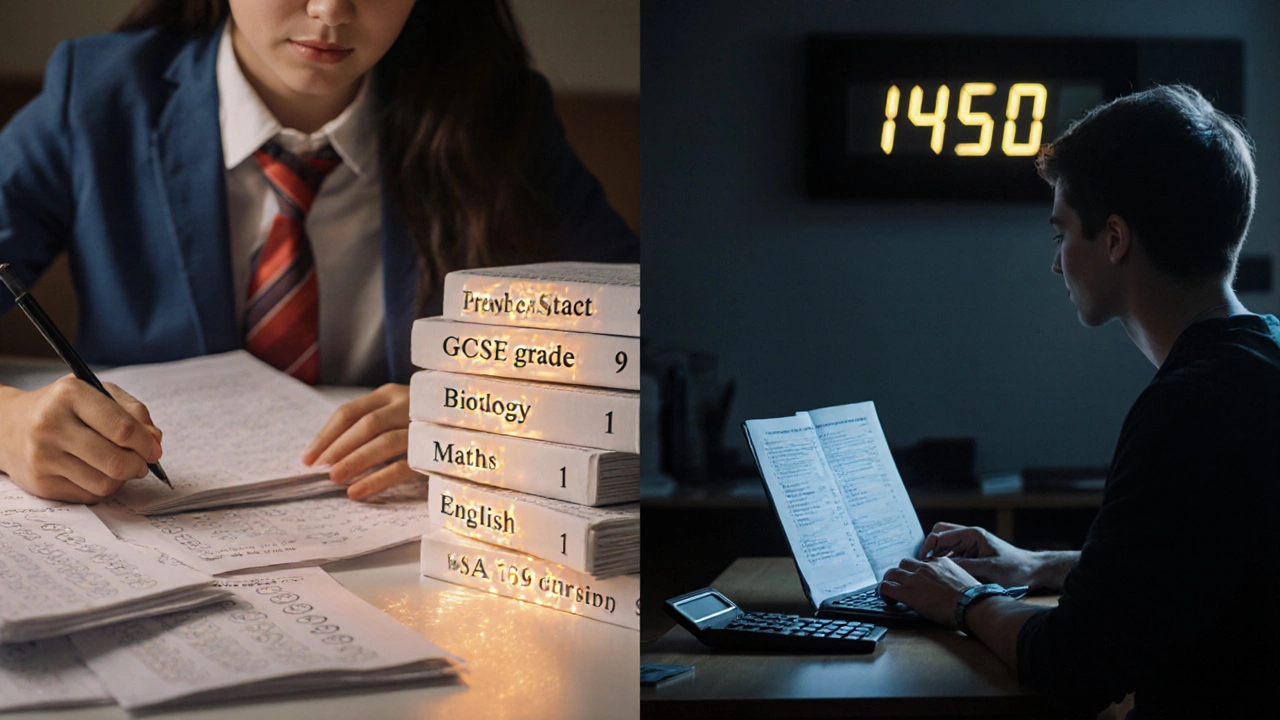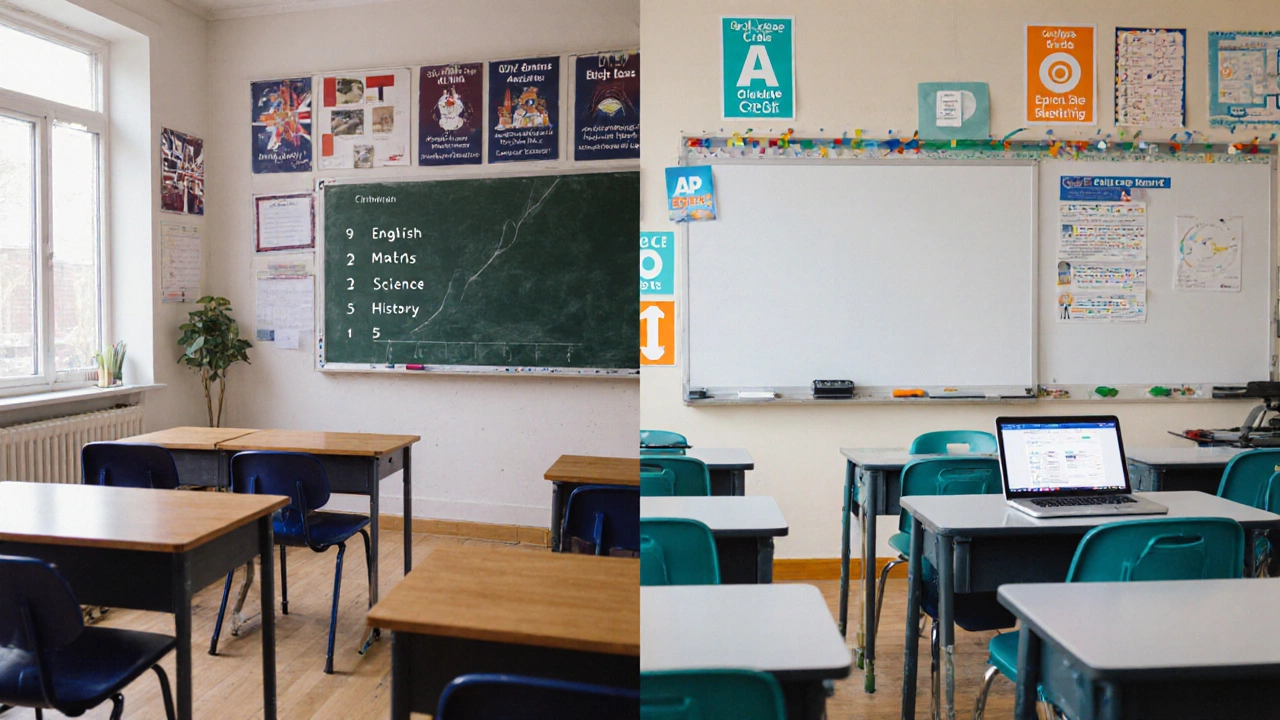GCSE Revision: Practical Tips and Proven Study Strategies
If you’re staring at a mountain of notes and wondering where to start, you’re not alone. Most GCSE students feel the pressure right before exams, but the right plan can turn stress into confidence. Below you’ll find straight‑forward advice you can apply today, no fluff, just things that actually work.
Pick a Revision Technique That Matches Your Brain
Everyone learns a bit differently, so the “one size fits all” approach rarely helps. Active recall – testing yourself on key facts – beats rereading by a long shot. Try flashcards, quiz apps, or simply cover a page and write what you remember. If you prefer visual cues, turn headings into mind maps or colour‑coded charts. The 2‑3‑5‑7 rule (2 days of new material, 3 days of review, 5 minutes quick recall, 7‑day spaced repeat) is a simple schedule that keeps information fresh without cramming.
Build a Realistic Timetable and Stick to It
Knowing how many hours to study is less important than using those hours wisely. Block out short, focused sessions – 45 minutes of work, 10 minutes break – and protect those slots like a class. If you only have a month left, divide subjects into priority groups and aim for at least three review cycles before the exam day. Use a planner or phone reminder to mark past‑paper days, because practicing under timed conditions reveals hidden gaps.
Don’t forget to schedule a “light” day each week. Your brain needs rest to store new info, and a break prevents burnout. On those days, skim notes, watch short revision videos, or discuss tricky topics with friends. You’ll stay engaged without feeling exhausted.
When you sit down, eliminate distractions. Turn off social apps, put your phone on silent, and create a tidy study space. A clean desk signals a clear mind, and you’ll finish each session faster.
Another secret is to test yourself with past papers early on. Mark your answers, note the mistakes, and then revisit those topics. This loop of practice, feedback, and targeted review narrows the distance between you and the exam board’s expectations.
Now, what about the infamous “is one month enough?” Yes, if you plan well. Start with a quick audit: list topics you know, topics you don’t, and rank them by difficulty. Allocate extra time to the weak spots, but keep a steady pace on the stronger areas to maintain momentum.
Finally, keep your goals realistic. A grade 5 is a solid pass, while a grade 9 demands top‑tier mastery. Set a target that pushes you but remains achievable, then break that target into weekly milestones. Celebrate small wins – they keep motivation high.
Remember, GCSE revision isn’t about endless hours; it’s about smart, consistent work. Use active recall, follow a balanced timetable, practice past papers, and give yourself regular breaks. Follow these steps, and you’ll walk into the exam room feeling prepared, not panicked.
What Is the GCSE Equivalent in the USA?
GCSEs are not the same as a U.S. high school diploma. Learn how U.S. schools and colleges evaluate GCSEs, what additional steps you need to take, and how to turn your UK qualifications into a pathway to American education.
MoreIs 3 Hours of Revision a Day Enough for GCSEs?
Is 3 hours of revision a day enough for GCSEs? The answer depends on how you use that time. Active recall, spaced repetition, and focused practice matter more than hours logged.
MoreIs 95% a 4.0 GPA? Understanding GCSE Grades and GPA Conversion
A 95% in GCSE is a top-grade performance, but it's not directly a 4.0 GPA. Learn how international universities interpret GCSE grades and what really matters for your applications.
MoreIs 3 Months Enough to Revise for GCSE? Here’s What Actually Works
Three months is enough to revise for GCSEs if you use the right strategy. Focus on active recall, past papers, and smart prioritization - not endless note-taking. Here's how to turn 90 days into real results.
MoreIs GCSE Equivalent to SAT? A Clear Comparison for Students and Parents
GCSEs and the SAT are not equivalent. GCSEs measure subject knowledge at 16, while the SAT assesses college readiness. UK students need the SAT for US colleges; US students need A-levels for UK universities.
MoreGCSE vs AP: Which Is Harder?
Explore the key differences between GCSE and AP exams, including curriculum, grading, workload, and university pathways, to decide which feels harder for you.
MoreHow Rare Is Getting All 9s in the GCSE?
Explore how uncommon it is to achieve a 9 in every GCSE subject, the numbers behind the top grade, and what it takes to pull it off.
MoreHow Hard Is It to Get a 9 in GCSE? Real Stories, Stats & Smart Strategies
Unpack the reality behind scoring a 9 in GCSEs. Get facts, student experiences, and actionable tips to understand what makes this top grade so tough.
MoreBest Revision Technique for GCSE: What Really Works?
Struggling to choose the right revision technique for your GCSEs? This article reveals the most effective methods, from active recall to spaced repetition, with real tips you can use right now. Discover how the brain remembers information, and how to skip the traps of passive studying. Dive into straightforward advice whether you prefer flashcards, past papers, or group work. Make every revision hour count with proven approaches that actually work.
MoreIs 5 a Bad GCSE Grade? What it Really Means
A GCSE grade 5 is often misunderstood—some think it's just average, others worry it’s not enough. This article breaks down what a grade 5 actually means, how it affects your next steps in education and work, and what you can do if you’re aiming higher. Find out the reality behind the numbers and get practical advice for your revision strategy. We'll cut through the confusion and look at what matters for your future.
MoreIs 1 Month Enough to Revise for GCSE? Honest Truths and Real Strategies
Wondering if one month is really enough to get ready for your GCSE exams? This article breaks down what’s realistic, shares proven revision hacks, and unpacks the challenges students face with last-minute cramming. Learn practical ways to manage your time, spot common mistakes, and squeeze the most out of the weeks before your exam. Whether you’re starting late or just want to sharpen your plan, you’ll find tips that actually work here.
MoreHow Many Hours Should You Revise for GCSE? Practical Guide to Smart GCSE Revision
Wondering how much time you should spend revising for your GCSEs? This article breaks down the ideal number of hours, explains why quality matters more than quantity, and shares realistic schedules. Get smart tips for fitting revision into your life without burning out. Make your revision work for you, not against you.
More











